Every Question About Anxiety You've Ever Had, Answered
Anxiety is a complex mental health disorder. Here, experts explain the causes of the issue, symptoms, and treatments, including alternative and natural therapies.
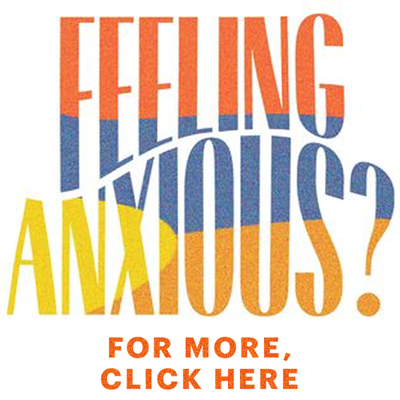
Are all of the things you don’t know about anxiety giving you anxiety? We feel you. So we tracked down a handful of experts—a psychiatrist, a psychotherapist, a psychologist, a professor, and a licensed professional counselor—to explain everything you ever wanted to know about the feelings that keep you up at night.
Click a question below to jump to its answer
- What is anxiety?
- Why does someone develop anxiety—is it a chemical imbalance or something else?
- Is it hereditary?
- Are there certain personality traits associated with anxiety?
- What are the typical symptoms?
- What is actually happening in the brain and body?
- What’s the difference between feeling anxious and having a panic attack?
- What’s the difference between feeling anxious and having an anxiety disorder?
- How do I know when to seek professional help?
- How are anxiety disorders diagnosed?
- How do I find a therapist?
- How do I know if my therapist is “The One”?
- What should I look for in a therapist?
- What natural anxiety remedies do you recommend?
- Are there any dietary recommendations for reducing anxiety?
- How do I know when it’s time to use medication?
- Are there any unconventional treatments that have worked?
- What do you advise patients to do when they feel an anxiety attack coming on?
- Can one ever be “cured” of anxiety?
What is anxiety?
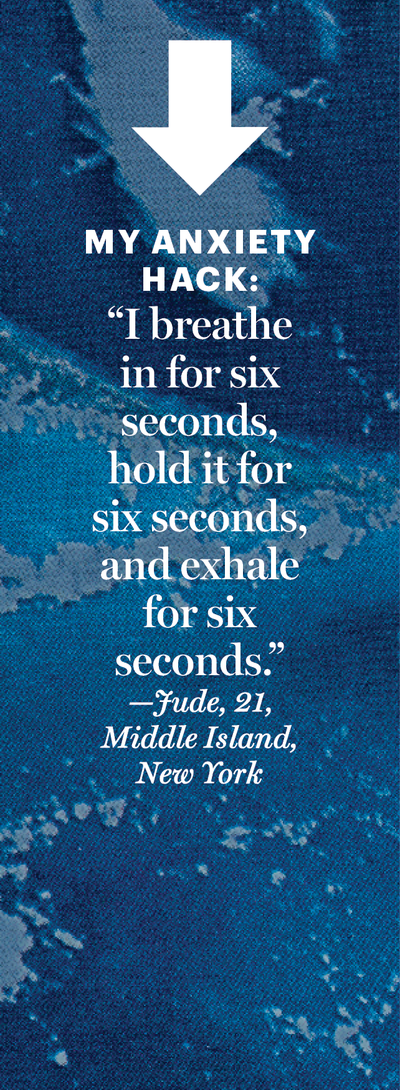
Anxiety is the body and mind’s way of keeping us safe and protected. It’s like a false alarm; you think things might be dangerous or scary or overwhelming, when in reality, they are often things you can cope with. We all need some anxiety: It motivates us to do positive things and avoid negative things. Even when treating it, we don’t want to get rid of it totally or we wouldn’t function. But when we have too much, or it becomes irrational or debilitating, that’s when it’s problematic. —Lori Evans, Ph.D., psychologist, NYU Langone, NYC
Why does someone develop anxiety—is it a chemical imbalance or something else?
It could be both. It’s nature vs. nurture—one could have a chemical imbalance, or they could learn the behavior from life experiences. —Bridget McKinney, PhD, licensed professional counselor supervisor, Metairie, Louisiana
Is it hereditary?
Yes, we do know that anxiety disorders run in families. —L.E.
Get exclusive access to fashion and beauty trends, hot-off-the-press celebrity news, and more.
Are there certain personality traits associated with anxiety?
There are people who have a genetic predisposition to anxiety attacks—nervous nellies and worry warts or whatever you want to call them. But then sometimes it can just begin out of the blue. —Samantha Boardman, M.D., psychiatrist, Weill Cornell Medical College, NYC; Marie Claire contributing editor
What are the typical symptoms?
Tightness in your chest, general uneasiness, racing heart, muscle tension, sweating, and troubled breathing. There are also cognitive signs: When you have excessive thinking or you’re distracted. —B.M.
What is actually happening in the brain and body?
When we perceive threats, the brain and the body work together to respond. The brain send a distress signal, and the hormones adrenaline and cortisol are released, as well as norepinephrine, dopamine. These chemicals alert us that something important is happening and cause physical symptoms because the body is preparing us for survival. —B.M.
What’s the difference between feeling anxious and having a panic attack?
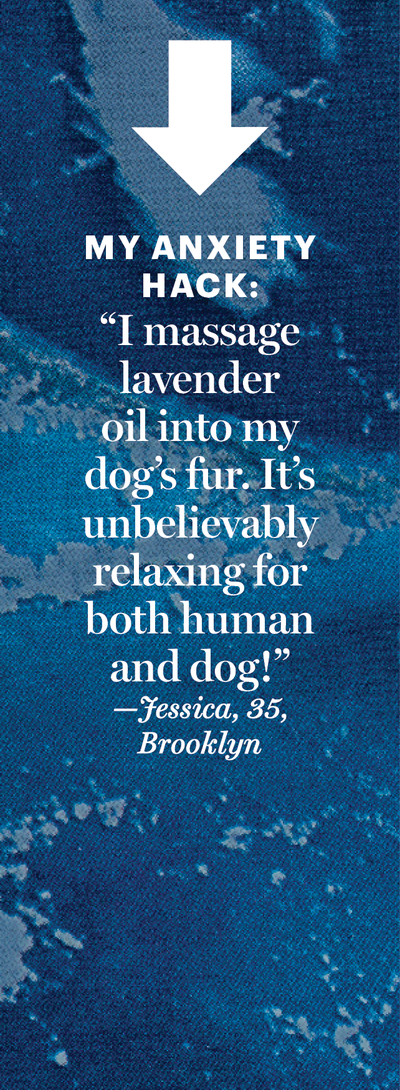
A panic attack comes on rapidly and are usually over in 20 minutes. People will say they last for hours, but they don’t. It peaks and then it’s done. It’s an adrenaline response. If you've ever been in a near-miss car accident, [you know the feeling]: your heart is racing, you’re sweaty, out of breath. The difference between that and a panic attack is you know what caused it. —Cheryl Carmin, Ph.D., professor, department of psychiatry and behavioral health, the Ohio State University Wexner Medical Center, Columbus, Ohio
What’s the difference between feeling anxious and having an anxiety disorder?
When you notice it’s not allowing you to do the things that you love anymore or if you have difficulty being present with your family and friends. If it’s interfering with multiple areas of your life, that’s when it’s a mental health disorder. —B.M.
How do I know when to seek professional help?
If it's ongoing for more than six months and it's interfering with your life. Often speaking to people you’re close to who can provide insight is a helpful way of seeing how it’s interfering with your life, or if it’s something you might be minimizing. —S.B.
How are anxiety disorders diagnosed?
With what we call a diagnostic evaluation, where you're sitting with either a psychologist or a psychiatrist, and they are going through your history, the symptoms of anxiety disorders, but also of other disorders so that we can rule out that your anxiety is not better accounted for by something else. They are semi-structured interviews; we have questionnaires for different age groups that help us make a diagnosis. —L.E.
How do I find a therapist?
We recommend most people to check with their primary care physician. Unfortunately, a lot of who you choose comes down to what's covered by your insurance, but most plans will list providers. —L.E.
Organizations like Anxiety Disorders Association of America have provider lists. —C.C.
On PsychologyToday.com you can filter by insurance plans, location, and specialty, so you can search for anxiety specifically. You can see a photo and bio of every therapist. —B.M.
How do I know if my therapist is “The One”?
It’s important to get on the phone with potential therapists and get a feel for their personality and style. They should put you at ease and make you want to open up more. —B.M.
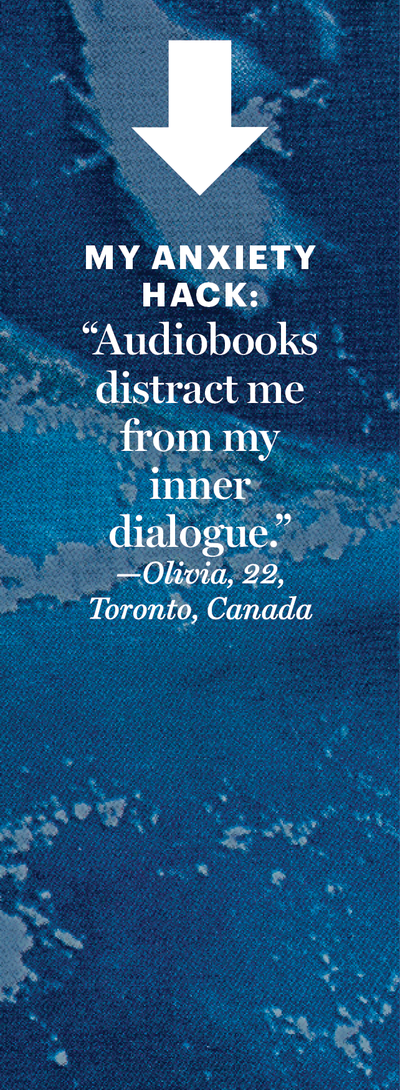
You should ask them things like: “Have you treated anxiety before?” “What methods do you use?” “Are you a cognitive behavioral therapist?” There are evidence-based treatments for anxiety, and you want to make sure that you're getting those. —L.E.
The people who will challenge you the most are often the ones you develop an initial resistance to, so my advice is to persist a little bit because sometimes that challenge is where you find the breakthrough. Someone might be tempted to end the relationship and that's the most unhelpful thing they could do. —S.B.
What should I look for in a therapist?
Many people prefer to have somebody who has lived their experience in the world, but I don't think that precludes a good treatment alliance or an understanding. Many therapists have had training in sensitivity and all kinds of issues outside of their own, so I think it ultimately is an individual preference. If someone feels more comfortable with a person of the same gender or background or sexuality it always should be taken into consideration, but it's definitely not a requirement. —Laura Silberstein-Tirch, Psy.D., director, the Center for Compassion Focused Therapy, NYC
What natural anxiety remedies do you recommend?
There are yoga poses that can dramatically decrease anxiety. Broken toe pose and horse pose both bring down the energy in the body, and it makes it hard for the heat to stay in the chest, where it overwhelms the mind and the heart. —Satya Doyle Byock, licensed professional counselor, psychotherapist, Portland, Oregon
A lot of times with anxiety the best remedy is the belief that this is going to work: I can stay calm. Self-talk can be really effective. —L.E.
Are there any dietary recommendations for reducing anxiety?
Stay away from caffeine and sugar. Those things can irritate anxiety or cause you to think you’re having anxiety symptoms when you’re really not. —B.M.
How do I know when it’s time to use medication?
If you have mild to moderate anxiety, we would start with cognitive behavioral therapy first. However, if that's not working, or the anxiety is so impairing—like, if someone is not coming out of their house—we’d refer to a psychiatrist for a medication consult. —L.E.
Are there any unconventional treatments that have worked?
At our center we do a lot of mediation training and compassionate mind training, which has been shown to be quite effective in terms of managing anxiety, self-criticism, and helping people access their soothing systems. As humans, we're meant to receive compassion from the day we're born from other people to help us regulate our emotions and calm down, so learning how to be compassionate to oneself has shown to be quite helpful. —L.S.T.
A big part of what we do is getting the person to confront what they it is they fear. If you're terrified that you're going to have a heart attack when your heart races, then we have you run up and down the stairs. —C.C.
Soothing things like having a warm cup of tea in your hand, a warm blanket over you, watching a candle burn, turning music on. —S.D.B.
What do you advise your patients to do when they feel an anxiety attack coming on?
Knowing what it is and not being afraid of it, is what will nip it in the bud. When it’s ramping up, say, “Hi old friend, can we not hang around long together?” That sort of approach to it helps you recognize that it’s not dangerous and you can manage it, rather than, “Oh my god, what’s wrong?!” —C.C.
Splash cold water on your face, call a friend, or make a fist, holding it tight with both of your hands and then release it so that you can feel your body relax. —L.E.
Can one ever be “cured” of anxiety?
You can learn how to deal with it better. You probably can't turn it off, but you can dial down the volume. —S.B.
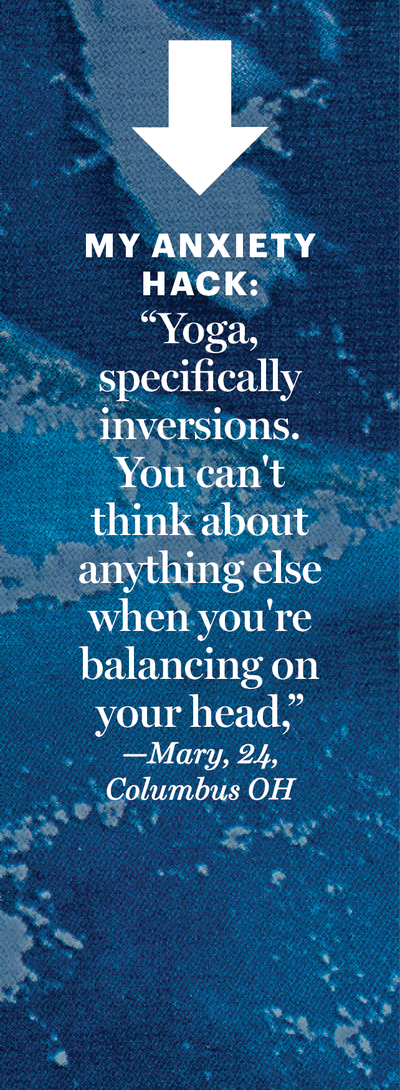
By no longer avoiding it or trying to make it go away, people can learn to have a whole new relationship with their anxiety and, in that sense, it does feel as if one is cured. But it doesn't necessarily mean that it goes away forever, it's that the experience has entirely changed and become more manageable. —L.S.T.
People can be cured of an anxiety disorder, but they can't be cured of anxiety. We do know that we can get people to the point where they no longer meet criteria for a disorder. That said, we don't want to say to someone, "You'll never be anxious again" because that's not life. —L.E.
Reporting by Summer Cartwright, Loren Cecil, Katherine Fung, and Katie Keller.
This story originally appeared in the July 2019 issue of Marie Claire
RELATED STORY
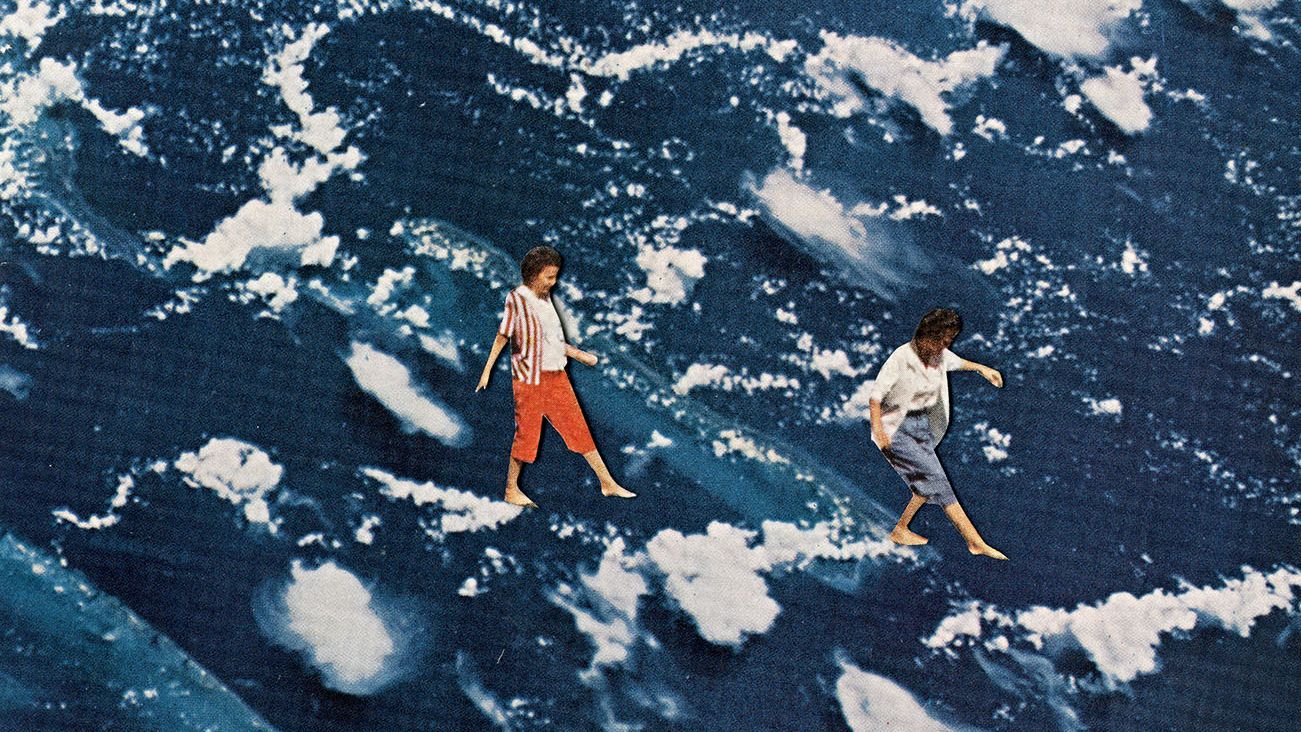
Marie Claire is committed to celebrating the richness and scope of women's lives. We're known for our award-winning features, thoughtful essays and op-eds, deep commitment to sustainable fashion, and buzzy interviews and reviews. Reaching millions of women every month, MarieClaire.com is an internationally recognized destination for celebrity news, fashion trends, beauty recommendations, and renowned investigative packages.